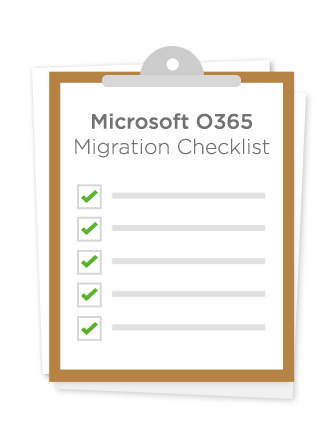What You Need to Know about Microsoft Office 365 Email Archiving

Companies today have begun mercilessly migrating away from their outdated office suite software towards a more robust and powerful Microsoft Office 365 (O365) solution. While there are some who have yet to make the leap, many companies, both large and small, have begun a massive migration toward O365 — most noticeably for its popular office applications like Word, Excel, PowerPoint and Exchange.
The beauty of O365 is that it offers an organization multiple plans for multiple types of businesses. But with each of these plans comes varied levels of functionality. For instance, in some plans, users have access to Office 365 email archiving capabilities through Microsoft’s hosted Exchange Server (aka Exchange Online) for legal discovery and compliance, not to mention eDiscovery to identify, hold and analyze data throughout their business. While Microsoft advertises that Exchange Online gives a company “archiving ability,” that’s not entirely the full truth.
If you’re part of a company that is moving or has already moved to O365 and is considering using its native archiving feature, pay close attention to the following.
If you’d like a guide on evaluating an email archiving solution, download our eBook on the 17 questions you should ask.
Proactive vs. Reactive
The Importance of Proactive vs. Reactive Archiving Abilities
Archiving policy decisions should be made on the corporate level, or in the case of a small-to-medium size business, by someone considered to be an administrator. Regardless of who has the final say, best practices suggest companies should archive all incoming and outgoing email across the enterprise. The decision on which emails to archive and which to delete should not end up in the hands of all employees. Here are two of the biggest reasons why:
- Lost Time — When users have to make a judgment call on each email, this can take time, which from a business perspective means a reduction in productivity.
- Lost Emails — Leaving the decision up to an end user, means multiple employees having to make multiple judgement calls. Occasionally employees will make the wrong call, which can lead to emails being deleted that should’ve been saved.
Typically what happens when an end user loses or deletes an email is they will ask the IT department to recover it. With Office 365 archiving, the email will not be found, as it never made it to the archive. This defeats the whole purpose of archiving.
Other areas in which Office 365 email archiving is limited includes:
- Retention — Office 365 archiving allows an end user to make the final determination on which emails should be archived and which should be deleted. This as a result somewhat circumvents the idea of having a retention policy in the first place. Not every end user has the knowledge or understanding about the ever changing regulatory requirements of the corporation and shouldn’t be burdened to make a judgment call on how long to retain the email. Retention policies can also not be applied to inactive mailboxes
- Discovery — Office 365 email archiver provides what is known as a role based multi-mailbox, but only with limited functionality. The two main reasons discovery is important is for legal or information requests. In both case, content should be in a share-able format. Office 365 archiving does not provide a tool to share the content after it is discovered. In addition, information about Bcc and distribution list recipients may also not be discoverable.
- Legal Hold — In Office 365 archiving a legal hold can be placed on one or more mailboxes and users are notified that a hold has been placed on their mailbox and Personal Archive. The problem is that users should never be notified that a legal hold has been placed on their emails. As soon as the legal hold information is available to the user they will know something is wrong. Also, the employee will spend time figuring out why the legal hold is placed and the productivity will go down. In order to preserve all email, all users must be on legal hold. Making matters worse, legal holds are not instantaneous and most often require IT involvement.
Other common drawbacks related to Office 365 archiving include:
- Server Bloat — Office 365 archiving admins are required to maintain their email server running at optimal performance. However these servers have limited amount of processing power and disk storage. The O365 email server functions efficiently as long as processing power and disk space utilization are in balance. Unfortunately, as the mail stores grow in size it takes an email server longer to complete a task like sending or receiving the emails, loading the mailbox, etc. This is called server bloat and it could cost your company a lot of time and money.
- Unmanageable Storage Growth — Businesses are generating an incredible amount of valuable information through email, which as a result calls for larger storage capacity. When mailbox quotas are implemented, users’ emails are saved as a PST file, which means they are out of the control of the IT Department. These files are not backed up and are therefore out of reach when a discovery request arrives. While Office 365 archiving is able to import these PST files into a Personal Archive Folder, the problem persists because the storage continues to swell and its cost continues to rise.
Because of these limitations, many companies are choosing NOT to rely solely on the native archiver — and are instead turning to purpose built, third party archiving solutions.

Microsoft Office 365
Microsoft Office 365 Email Archiving Isn’t Enough
It would be foolish to encourage a business to steer clear of Office 365—there are just so many benefits it’s almost impossible to replicate. However, that doesn’t mean it should be the end all/be all for your email archiving solutions.
Although Microsoft has taken a good first step towards implementing archiving for its Exchange Server, the features are in need of refinement. As mentioned earlier, in many instances the control falls to the end user, which is a big flaw when implementing archiving from a regulation point of view. Users should not be responsible to manage their own archiving needs by moving the email from the primary mail box to the Personal Archive. Instead, the email should always be archived, no matter what the end user preference is.
While effective, Microsoft’s native archiving application is lacking in terms of the amount of functionality it allows. Some of the key features that an archiving solution should always have include:
- Audit log — It is essential that audit logs are kept for all the actions taken by users. The audit log feature is important because it helps a company satisfy the strict standards of regulatory compliance. This is an important feature because compliance officers, human resource managers and legal counsel will conduct discovery on sensitive content.
- Tags and comments — Part of a discovery request requires that each email is viewed and the appropriate action is taken. An email could be found during discovery phase but it might not be directly related to the issue at hand. This email will not be shared. Having tag and comment features give corporations tools to ensure an appropriate reason is documented as to why an email is –or is not—part of the final selection. Tags can also be used for process flow. For instance, a “To be reviewed” tag can be placed on all the email found during discovery and a “reviewed” tag can be placed once each email is viewed.
- Monitoring — Review of some or all email content is an important compliance requirement. A monitoring feature allows for a random search of email, so every night all emails go through the filter and a select percentage are automatically selected for further review.
- Automation — Automatic classification of email content is becoming a necessary tool for corporations because of the shear number of emails going through their email servers. An email archiving solution needs to provide a simple and easy way to classify the emails and notify the concerned authority.
- Single-Instance Email — An email archive solution should not only do single-instance of email but should also de-duplicate the attachments. For example, the company logo which is part of the signature of all the company’s emails should be stored only once. It shouldn’t be stored with all the emails.
The above capabilities mentioned above are why third party archiving solutions, like Intradyn’s Email Archiver, have become a necessary addition to Office 365 email archiving capabilities.
The Solution
A Pro-Active Answer to Archiving
Intradyn’s Email Archiver, unlike Office 365 archiving, archives everything, and instead puts the responsibility of which emails should be archived in the hands of the business itself — not every employee within that business. Intradyn’s solution does allow for multiple access methods for end users, but for the most part the responsibility of archiving is in the hands of an administrator(s). The following are just some of the benefits of selecting Intradyn’s purpose built third party archiving solution:
Backup and Disaster Recovery — Backup and disaster recovery are essential features of any solution. A solution that has valuable data needs to have multiple layers of protection.
Superior Archiving Capabilities — Capture, save and index all emails, all incoming and outgoing emails, historical emails from the mail server, emails from PST and other archiving solutions. Specific archiving features include:
- Unlimited/expandable storage options
- Real time fetching with journaling
- Works with top email servers
- Send all incoming-and-outgoing email
- Import PST files
- Raw email (RFC822 format)
- Import historical email from mail server
Powerful Search Functionality — Find any or all the emails using easy, intuitive and powerful search, even typos or misspellings are covered by fuzzy logic. Search capabilities include:
- Locating messages containing specific attributes (including metadata).
- Multi-unit searching (Clustering/Federation).
- Single search to capture data from multiple deployments.
- Single-character wildcard and multiple-character wildcard.
- Proximity searches to find single terms that are located a specified distance apart.
- Fuzzy searches for a single term that may have been misspelled and will result in terms with similar spelling and the same number of characters.
- Save search feature for those searches you expect to perform on a regular basis.
- Schedule search can place a legal hold or tag on any email which meets the search criteria.
- Attachment searching using metadata (like name and type) search.
- Search in 100+ languages.
As mentioned earlier in this post, Microsoft Office 365 provides solid office suite infrastructure, but their email archive capabilities are not business ready. Contact us today if you’re in need of a purpose built email archiving solution better suited to meet today’s business, compliance and regulatory requirements.

